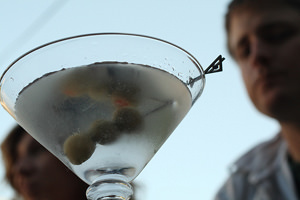Study: Alcohol More Harmful Than Crack
Startling but true, according to one of those expert sources that make these kinds of pronouncements: Alcohol is more harmful to both users and those around them than crack cocaine. It's worse than heroin too.
Startling but true, according to one of those expert sources that make these kinds of pronouncements: Alcohol is more harmful to both users and those around them than crack cocaine. It’s worse than heroin too.
The study that says so was just published and publicized by the U.K. medical journal The Lancet. Here’s a link to the study itself; the BBC expounds below. –KA
Dig, Root, GrowBBC:
The BBC’s home editor, Mark Easton, writes in his blog that the study involved 16 criteria, including a drug’s affects on users’ physical and mental health, social harms including crime, “family adversities” and environmental damage, economic costs and “international damage”.
The modelling exercise concluded that heroin, crack and methylamphetamine, also known as crystal meth, were the most harmful drugs to individuals, but alcohol, heroin and crack cocaine were the most harmful to society.
When the scores for both types of harm were added together, alcohol emerged as the most harmful drug, followed by heroin and crack.
This year, we’re all on shaky ground, and the need for independent journalism has never been greater. A new administration is openly attacking free press — and the stakes couldn’t be higher.
Your support is more than a donation. It helps us dig deeper into hidden truths, root out corruption and misinformation, and grow an informed, resilient community.
Independent journalism like Truthdig doesn't just report the news — it helps cultivate a better future.
Your tax-deductible gift powers fearless reporting and uncompromising analysis. Together, we can protect democracy and expose the stories that must be told.
This spring, stand with our journalists.
Dig. Root. Grow. Cultivate a better future.
Donate today.








You need to be a supporter to comment.
There are currently no responses to this article.
Be the first to respond.